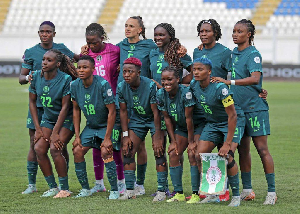The Federal Government says it currently lacks half of the human capital required to efficiently run the country’s power sector, particularly in the growing renewable energy space.
The Director-General of the National Power Training Institute of Nigeria, Ahmed Bolaji Nagode, disclosed this during the official launch of the Next Gen RESCO Programme, organised by the Rural Electrification Agency in collaboration with NAPTIN and Eco-Innovation Empowerment Initiatives.
According to Sunday’s release by REA in the wake of the event themed ‘Empowering Future Leaders in Renewable Energy’, Nagode stressed the urgent need to bridge the skills gap among Nigerian youths to meet the evolving demands of the energy industry.
“This is a tripartite collaboration, carefully structured to identify, train and empower youths with the requisite skills to thrive in the renewable energy space,” he said.
He noted that the initiative aligns with President Bola Tinubu’s agenda of job creation and economic growth, adding that the country’s youthful population presents a unique opportunity to drive transformation in the sector.
Nagode said, “We know very well that in our country and most developing nations, the population of young people is massive. However, white-collar jobs are shrinking like a pyramid. The higher you go, the fewer they become.
“This programme is addressing that gap by promoting skills acquisition so we can develop a vibrant, efficient and effective workforce for renewable energy, which remains largely under-penetrated.”
He pointed out that although Nigeria produces a large number of graduates, many lack the practical skills needed to function in the industry.
“There is a difference between academic qualifications and the skills required to operate the power network.
That is the void NAPTIN was created to fill, and this also applies to the renewable energy space,” he said.
Nagode listed four critical areas of focus under the training programme: solar photovoltaic installation and maintenance, solar PV supervision, mini-grid design, and energy efficiency.
He added that while NAPTIN serves as a centre of excellence within the West African Power Pool and the Association of Power Utilities of Africa, the institute has clearly identified the need for technical competence over paper qualifications.
“When you look at the graduates we are churning out. They do not have relevance with the jobs that are available there. So when you look at the renewable energy space, we have not even occupied 50 per cent of the human capital required, so there is a strong linkage, as far as what we are all gathered here today, to make sure that we bring out youth that will be well-skilled to operate and maintain the renewable energy infrastructure,” he said.
The NAPTIN boss also raised concerns over the sustainability of solar infrastructure currently being deployed across the country.
“Even within Abuja, you see solar streetlights everywhere. Without proper operation and maintenance, many of these will fail within four to five years. That is why it is critical to quickly ramp up skills training for young Nigerians,” he stated.
Nagode urged stakeholders to prioritise local content development by training youths to take ownership of the country’s renewable energy future instead of relying on foreign expertise.
To resolve this, the REA expressed its determination to create an additional 10,000 jobs in the renewable energy sector over the coming years as part of efforts to bridge the huge energy access gap in the country.
REA’s Managing Director/CEO, Abba Aliyu, noted that there are about 70,000 jobs in the renewable energy space, with thousands more needed in the industry.
He said, “The entire African continent accounted for only 320,000, of which the country with the greatest number of people that do not have access only accounted for 70,000 of those jobs.
“We need to change that narrative. We are here now, starting to go beyond the rhetoric, going beyond just talking and walking the talk. We are about to add 120 additional job opportunities to the renewable space through this event that is taking place.
“And I think we deserve a round of applause. So, we have started changing this narrative. In terms of localisation, through the deliberate policies of Mr President, we now as a country have a 600-megawatt PV panel manufacturing capacity in Nigeria, which was before Mr President assumed power.”
He explained that the Next GEN Programme, Nigeria’s first public-private talent pipeline for the renewable energy sector, aims to attract and equip young Nigerian graduates with the required skills to work in the renewable energy space.
With an initial batch of 120 young graduates drawn from across the six geographical zones, the programme is expected to take the intakes through a paid three-month classroom education at the NAPTIN and a month-long internship with selected RESCO.
Aliyu noted that the programme blends classroom learning with nine months of paid internship placements at leading RESCOs, with automatic job offers for top-performing trainees.
Business News of Monday, 26 May 2025
Source: www.punchng.com













